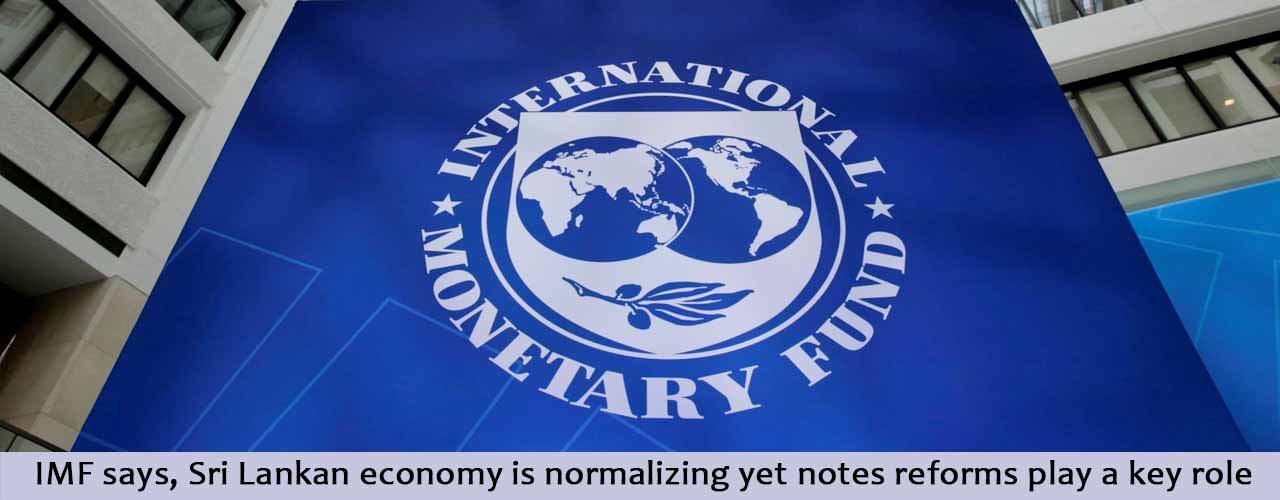IMF says, Sri Lankan economy is normalizing yet notes reforms play a key role
IMF has projected a real GDP growth of 4.6% over the medium term with the economy expected to reach normalcy in 2018. However, IMF has reaffirmed on its call for the government to continue on the reforms that it has undertaken to establish fiscal consolidation.
A staff report by IMF stated,” The real GDP growth is projected to increase from 4.2% in 2017 to 4.6% in 2018, as agriculture recovers with the return of normal weather conditions while construction and services remain resilient”. Although it is important note the disparity between IMF prediction and that of the Central Bank of Sri Lanka, which predicts around 5% – 5.5% growth. Inflation is expected to be around 5% with current account deficit also expected shrink from 3% in 2017 to 2.5% in 2018.
The statements from IMF comes along with the third review of Extended Arrangement under the Extended Fund Facility with Sri Lanka. Sri Lanka has been carrying over a 3-year reform programme with the support of IMF since 2016 and the for the first half of the programme two major tax reforms and tax stabilization has remained the key objectives.
Mitsuhiro Furusawa, Acting Chair and Deputy Managing Director of IMF, stated that Sri Lanka has been satisfactorily meeting its’ targets until the end of September 2017. However, he added that ““Nevertheless, Sri Lanka’s high debt burden, large gross financing needs, and weak financial performance of state-owned enterprises increases the importance of further fiscal consolidation,”.
IMF further notes the weak performances by the State-Owned Enterprises and notes how 3 SOE’, namely Ceylon Electricity Board (CEB), Ceylon Petroleum Corporation (CPC), and Sri Lankan Airlines combined made a loss of Rs. 52 billion. A representation of 0.4 of Sri Lanka’s GDP. This is in contrast to the combined profit of 0.2 GDP in the year 2016.
The report further adds, “Rising oil prices and weather shocks raised the cost of non-commercial obligations (NCOs) to supply electricity and fuel at prices below cost-recovery levels. The efforts to restructure the airline have hit an impasse, as the search for a strategic partner restarted under the new task force overseen by the Prime Minister’s Office. Future program reviews will discuss the action plan for the airline and set key milestones as a structural benchmark.”
OSL TAKE
IMF report presents a clear outlook on the progress as well the improvements yet to be made. Despite, achieving a moderate level of stabilization there remains clear risks and downsides due to many pressures which have not been dealt with properly. Government obligations especially in SOE’s have added to the pressures and there remains a large scope of work remaining on that front.
However, with the largely positive outlook given to the implementation of fiscal consolidation it can be surmised that Sri Lanka would continue to receive the support of the IMF as per the programme in the coming years.
| Article Code : | VBS/AT/20181022/Z_1 |

